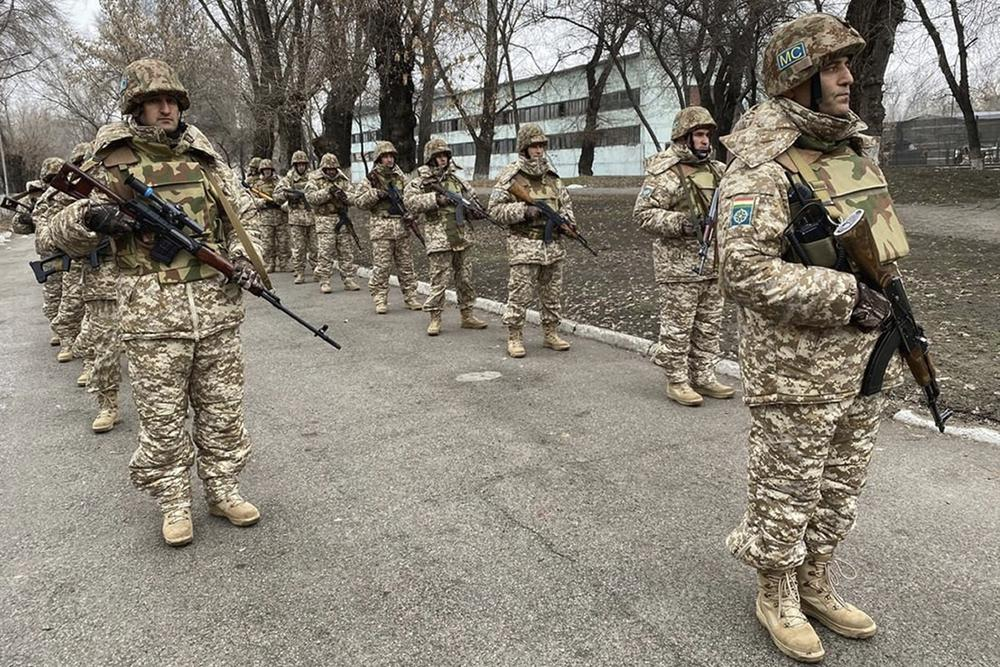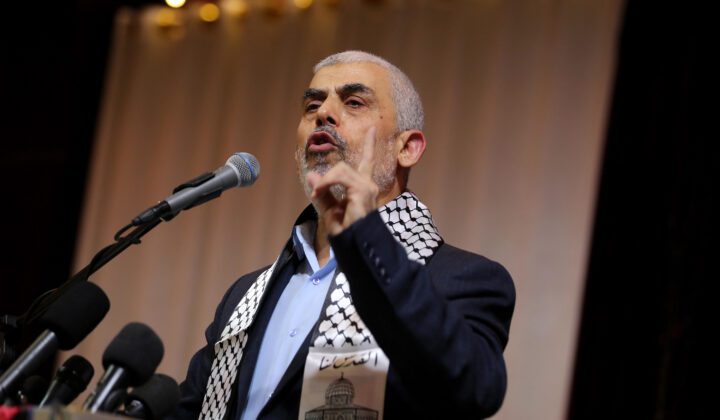Russia, through the Collective Security Treaty Organization (CSTO)—the successor to the Warsaw Pact and Russian equivalent of NATO—has deployed troops to Kazakhstan to suppress anti-autocratic protests. The protests were sparked by the rise of gas prices, but the government’s announcement that it has reversed its plan to increase the cost of gas has not put an end to the unrest, which suggests that the protests are really against the government’s oppressive rule.
These protests offered hope for real democratic progress in Kazakhstan, while Russian suppression seems to have doomed that fate. Yet, when it comes to Russia’s role, several media outlets are repeating the Russian and Kazakhstani autocrats’ narrative that the military forces are there to help.
A Washington Post report correctly wrote that “the protests began over a near-doubling of prices for a type of liquefied petroleum gas that is widely used as vehicle fuel, their size and rapid spread suggested they reflect wider discontent in the country that has been under the rule of the same party since gaining independence from the Soviet Union in 1991.” Yet, the same report described the “Russia-led military alliance” as “peacekeeping forces.” Similarly, another Washington Post report said that “2,500 mostly Russian troops [deployed] to Kazakhstan as peacekeepers.”
Unfortunately, the misstep isn’t contained to the Washington Post. The New York Times has called the Russian forces “peacekeepers” on several occasions, as has the Wall Street Journal.
“Peacekeeping force” is a term applied in the context of armed conflicts, usually of some power parity, and the two or more sides of conflicts always involve states or militias. In Kazakhstan’s case, Russian forces are not neutral stakeholders of peace. They are going there to help the stronger side, the Kazakhstani government, against protestors. That’s not peacekeeping, it’s suppression.
It is no coincidence that Russia is using the term “peacekeeping,” since NATO has frequently used it. Peacekeeping has historically been just that, and unlike other military ventures, it shouldn’t be controversial. Unsurprisingly, Russia has decided to hijack the term to lend legitimacy to its armed intervention in Kazakhstan and, as a bonus, to troll NATO.
But there is no equivalence between the NATO peacekeeping forces in Bosnia whose mission was to prevent a genocide and the Russians who are there to prop up a dictator against the wishes of the people. While NATO peacekeeping forces escorted girls to school in Afghanistan, Russian troops backed the Kazakhstani army which the dictator gave a license to kill protestors. NATO and Russia’s post-Soviet alliance aren’t equivalents, despite what Putin would have you believe.
The free press is the bedrock of Western societies, but the Russian disinformation machine has perfected manipulating it to its will. While we can’t expect to contain what comes out of the Kremlin, we must demand more of our news organizations to push back on the narratives fed to them by foreign agents. Despite what we hear from Moscow, the Russian soldiers in Kazakhstan are not peacekeepers, just as the Russian forces that invaded Ukraine in 2014 were not “little green men.” How we describe conflicts has geopolitical consequences, and we must recognize the situation in Kazakhstan for what it is: the brutal suppression of protests aided by a foreign army.





